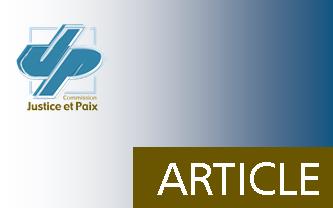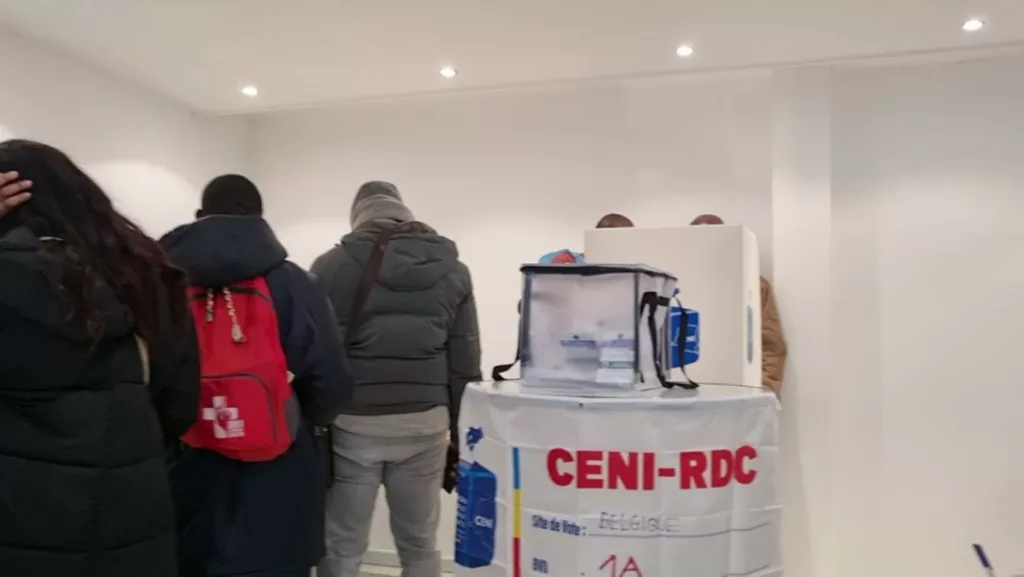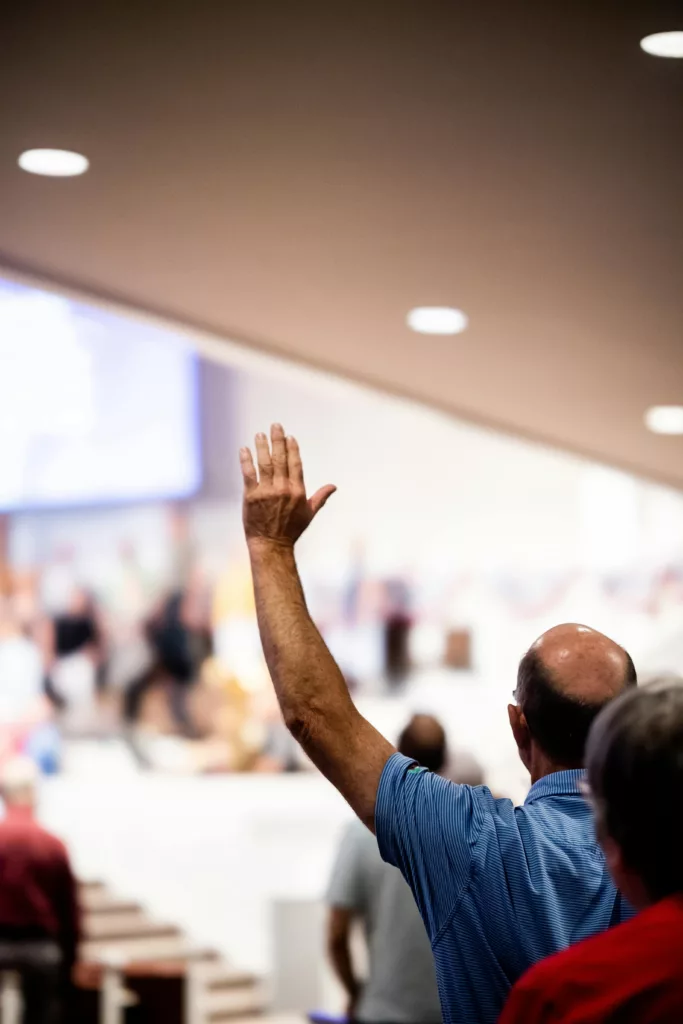The issues allowing the maintenance of numerous conflicts in the African Great Lakes region are different. The case of the Democratic Republic of Congo->word1] (DR Congo) is very telling in these terms. The issues are numerous and closely linked to each other. The [regional commissions of Justice and Peace looked into this question, to then identify avenues for citizen and solidarity action to be put in place.
The question is why these warlike conflicts [Since the war led by Kabila Joseph, then a rebel, against the dictatorial regime of President Mobutu in 1997, the Great Lakes region has never known peace again. If this war had the avowed intention of seizing power in Kinshasa, the unacknowledged intentions of those who brought him to power were rather economic. Continue to wage war in Congo to further exploit, and without control, its wealth, particularly mines. Several armies of rebels, coming from and/or supported by neighboring countries, notably Rwanda and Uganda and the national army (FARDC) confront each other there and damage property and human lives.]], devastating and dehumanizing persist despite so much effort: Where do they come from? Can we hope one day for peace in this part of the continent? Under what condition(s)? The Democratic Republic of Congo is, in this region, the example which shows the complexity of the issues linked to conflicts: the problems are numerous and closely linked to each other. An analysis of this context is necessary before being able to identify coherent courses of action. This analysis is the result of collective reflection carried out by the [regional commissions Justice and Peace of Namur, Liège and Walloon Brabant, leading a mobilization project around issues linked to peace and democracy in Central Africa.**Lack of good governance around mining resources
A first source of this conflict is found in the lack of management of the mineral resources which abound in the soil and subsoil of this part of the world, being the object of covetousness by nationals and expatriates. Despite the incredible wealth of the Congolese subsoil, which can ensure that everyone gets their share, this bad governance leads to deadly competition around these resources. It is here that the balance of power is firstly established between the international powers, and between them and the power in place, the Men of Power among themselves and with a portion of the population. In this context, the role of multinational firms is quite telling. Let us take the position of the “Technical Cell for Mining Coordination and Planning” (CTCPM), a consulting body for the study and coordination of activities in the mining sector in the Democratic Republic of Congo. [1]Beyond this role, the CTCPM is also responsible for designing policies and strategies aimed at optimizing the exploitation of mineral resources in the DRC.. Regarding mining contracts, this unit clearly speaks of it in terms of the “hold-up” of the century. Firstly because the multinationals themselves take care of the total marketing of the products and unfortunately still get paid for it. In addition, in the contracts, they are exempt from taxes for 20 years. Concerning the management and exploitation of its mines, Congolese participation is almost zero. In any case, Congo loses. The case of Anvil Mining Anvil Mining is a Toronto-based mining company that owns copper deposits in the Democratic Republic of Congo. This company is one of those which exploits Congolese mines according to a hybrid contract signed with Gécamines [2]Société Générale des Carrières et des Mines, a Congolese state company based in the mining region of Katanga. The commission responsible for reviewing the mining contracts found that the Congolese state gained absolutely nothing from this contract. The company mines copper and silver near Kilwa in Katanga, a deposit with a minimum value of 1 billion 230 million dollars. This part of the world is becoming the scene of competition and conflict not only between national actors (including state forces and armed militias) but also between the great powers of the world. Our position is clear: the war in Eastern Congo has nothing to do with the multitude of existing tribes. It is not a “Congolese-Congolese” war either. It is a subtle form of aggression against the Congo to better exploit – in disorder – its wealth. However, the borders have meant that these minerals mostly belong to the Democratic Congo. It is up to the power in place in the DRC not only to protect what belongs to it but to establish mining contracts respecting the interests of both its population and its international partners. This is where the problem lies: these contracts were negotiated by the power in place, at a time when the Congo was in the midst of a legitimacy crisis. Today, there is talk of returning to these so-called leonine contracts, negotiated solely for electoral purposes for the government and to further exploit the Congo for multinationals. The fight of civil society (including Justice and Peace) must be part of this register. It is first necessary to be outraged by the nature of these contracts whose interests are clearly unilateral, to the disadvantage of the producing country. Secondly, it is necessary to establish, with the collaboration of local partners, particularly Congolese, lobbying to influence decisions and direct them in a much more ethical direction. Multinationals are Western companies, firms and businesses that exploit the natural resources of poor countries and sell their refined products at a higher price. Should we condone such injustice? We advocate for legislation that forces companies active in the sector to act in compliance with social and environmental standards.**Forces present: complicity and particular interests
A second source of the conflict is the behavior of the power in place: it manifests itself first by complicity with those who pillage the country it is supposed to protect, then by the mismanagement and governance of the country. What astonishes the Congolese people is the betrayal of power which collaborates with the detractors of its goods and interests. This power is in fact anti-popular. He does not “ride” for the people but for his own interests. For example, the war which continues in the east of the country. The question is who benefits from it. For many observers, it is multinationals and Rwanda who are profiting from this situation. During the transformation of the CNDP from an armed group into a political party, the current Congolese President Laurent Kabila was close to Bosco Ntaganda, an influential figure in the CNDP. But since July 13, 2012, the International Criminal Court (ICC) has filed a second arrest warrant against the former general and support of the newly re-elected president. Joseph Kabila therefore finds himself torn between the international pressure weighing on Bosco Ntaganda and the difficulty of abandoning his ally. This explains the vague policy he has pursued towards the M23 since April 2015. The main armed rebel groups active in the east of the Democratic Republic of Congo The M23, the March 23 Movement, is a group created following the Kivu war. It is made up of ex-CNDP rebels reintegrated into the Congolese army following a peace agreement signed on March 23, 2009 with Kinshasa. They then mutinied in April 2012. Their name comes from the agreements of March 23, 2009, because the members consider that the Congolese government did not respect its terms. The M23 is accused of numerous acts of violence against civilian populations, by NGOs (Human Rights Watch), by the International Criminal Court (ICC) and by the American government. The CNDP, National Congress for the Defense of the People (CNDP) is the rebel group established by Laurent Nkunda in the Kivu region of the Democratic Republic of Congo. The CNDP fought against the DRC Armed Forces in the Kivu conflict. In August 2007, the Congolese Armed Forces announced that they would end a seven-month offensive against the Democratic Forces for the Liberation of Rwanda (FDLR). The end of the campaign drew sharp criticism from the Rwandan government, as the FDLR were the main Hutu forces opposing pro-Rwanda militias during the latter part of the Second Congo War. The FDLR is also made up of former Hutus responsible for the 1994 genocide in Rwanda. If in the face of international pressure, Joseph Kabila abandoned his ally and requested his arrest so that he could be "tried in the DRC", there is a lack of real political will to translate this official position into action. Today Kabila is in a difficult situation. He can no longer deny the M23 which largely supported him during the elections but he cannot justify their rebellion given the abuses carried out. As President of the Republic, many expected a strong and committed stance against the rebels.**Forces present: the role of Rwanda
When approaching the situation of a Central African country, it is very difficult to ignore the regional context: each country in this region is involved in the economic and political issues of neighboring countries. According to a UN report, the M23 is supported mainly by the Rwandan government and, to a lesser extent, by that of Uganda. A large part of the members of the M23 are Congolese of Rwandan origin. Kigali shows solidarity with them, but it is not only out of ethnic sympathy that Rwanda supports this rebellion: Kigali has an interest in maintaining a situation of insecurity in the eastern zone of Congo [3]Since the resurgence of fighting between the CNDP and the Congolese armed forces, the FDLR has openly fought alongside the latter who supply it with weapons and ammunition. Besides this source… Continue reading. Instability at the border facilitates trafficking, particularly in minerals such as cassiterite (rare and necessary for the manufacture of mobile phones). If mismanagement and bad governance are no longer to be demonstrated in this country rife with corruption, they do not constitute the fundamental cause of the conflict in the East but they partly explain the maintenance of this war. Managing well means maintaining order. However, the order would not allow everyone to benefit as they wish from the wealth of the Congolese nation. Bad governance is part of this unacknowledged desire to lead the Congo into the abyss to benefit more from its goods. But faced with such a situation, here is a possible solution: the alternation of power through elections. Civil society has a role to play in this sense. It will not replace the voters but will be able to walk with these people in the electoral process and help them to provide themselves with leaders who will serve their cause and be accountable.**Our challenge: raise awareness, challenge, mobilize
Throughout our analysis, we have identified different points of attention, around which civil society must position itself in response to the various issues linked to the conflicts in the DRC. How, more concretely, can we act around these issues? What can the “ordinary citizen” who does not want to remain indifferent to this situation do? As members of the Justice and Peace commissions of Namur, Liège and Walloon Brabant, we want to mobilize in solidarity with the populations of Central Africa affected by these endless and dehumanizing conflicts. Here are three concrete avenues of action:- Sraise awareness among our fellow citizens of the situation in Central Africa: this concerns us all! Despite the geographical distance that separates us, citizens living in Belgium are directly involved (for example as consumers) in the issues allowing conflicts to persist. Just think that the GSMs that we use with ever greater frequency are made up of these “conflict minerals” from the DRC. Without wanting to feel guilty, providing information on the difficulties experienced by local populations as well as showing the “interdependencies” which link Belgian and Congolese citizens is a fundamental step towards changing things. It is up to the population to question our global economic model, which is unsustainable from a human and environmental point of view.
- Challenge political decision-makers : It is necessary for the population to be vigilant regarding the behavior of the Belgian authorities. Through advocacy actions, citizens can influence political decisions that have an impact on the situation of conflicts and democracy in this region. [This is the case with the regulation recently adopted by the European Parliament regarding the supply of European companies with minerals from conflict zones (see the Justice and Peace analysis [The European Parliament takes a historic step forward in the fight against 'blood minerals''']], as well as exert pressure on decision-makers so that they do not support dictatorial regimes which in no way respect the dignity of their people.
- Taking into account the role of African diasporas : Our work must take into account the essential role of African diasporas living in Belgium. The significant presence of these communities is a cultural wealth that characterizes the Belgian reality. Work to raise awareness among the Belgian population must be done not simply in solidarity with the African populations “over there”, but also with those “here”, with a view to mutual enrichment and living together. Furthermore, members of the diasporas are real agents of change. This is all the more important for the Congolese diaspora, participating, for the first time from abroad, in the presidential and legislative elections planned in Congo in November 2016.
Attachments
Notes[+]
| ↑1 | Beyond this role, the CTCPM is also responsible for designing policies and strategies aimed at optimizing the exploitation of mineral resources in the DRC. |
|---|---|
| ↑2 | Société Générale des Carrières et des Mines, a Congolese state company based in the mining region of Katanga |
| ↑3 | Since the resurgence of fighting between the CNDP and the Congolese armed forces, the FDLR has openly fought alongside the latter who supply it with weapons and ammunition. In addition to this source of supply, the financing of the armed component of the FDLR comes mainly from the exploitation of mineral resources in the areas it controls in North and South Kivu. This war allows Rwanda to exploit the Congo's natural resources as it wishes, in particular to support its economy but also its army. |






